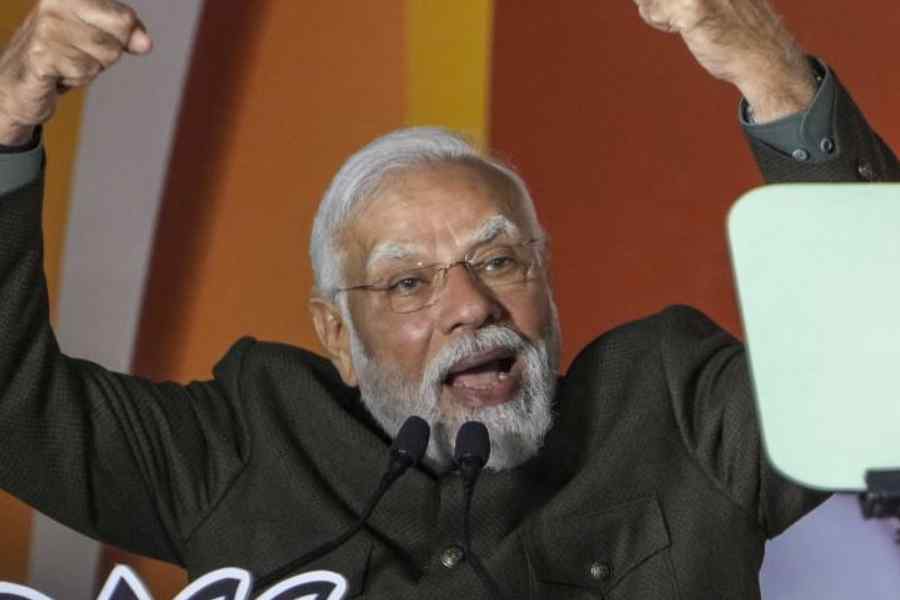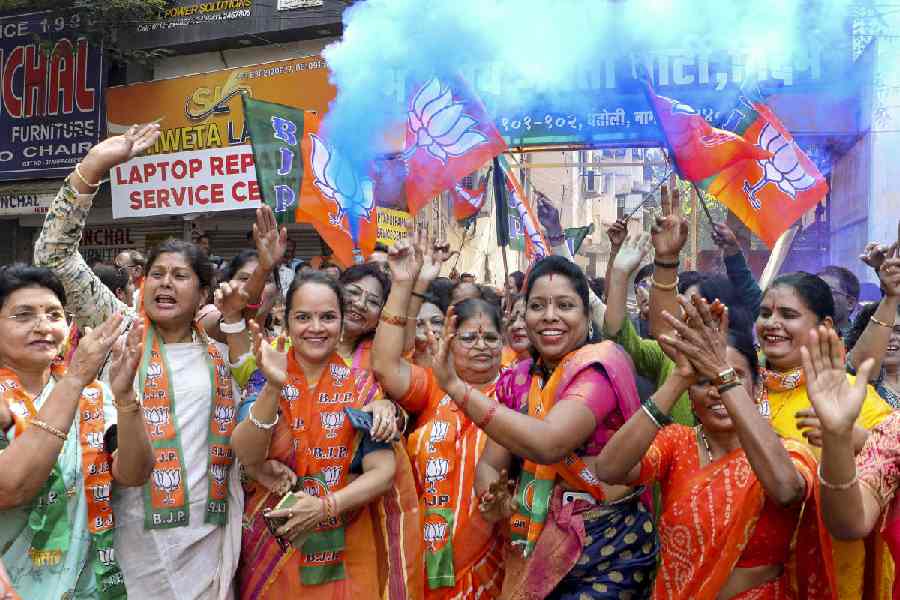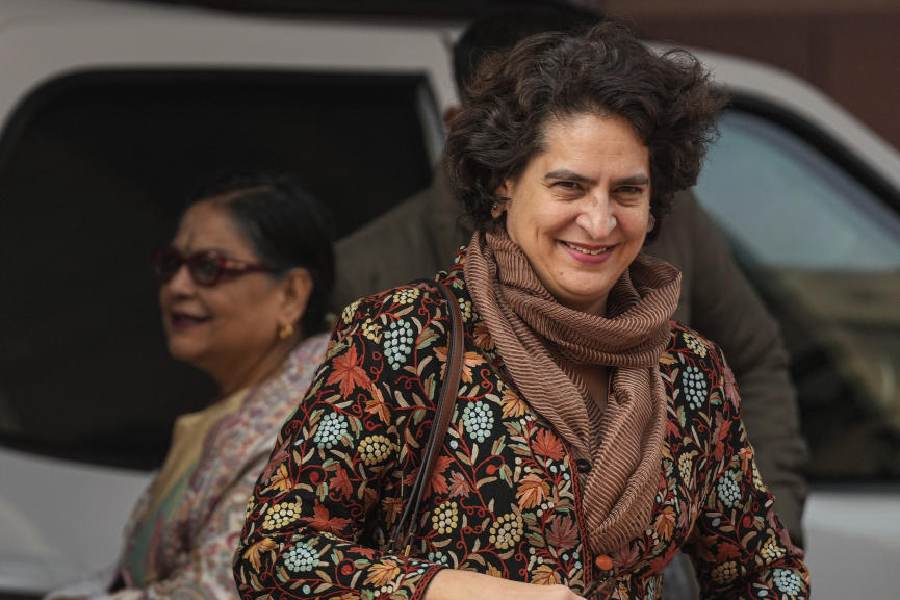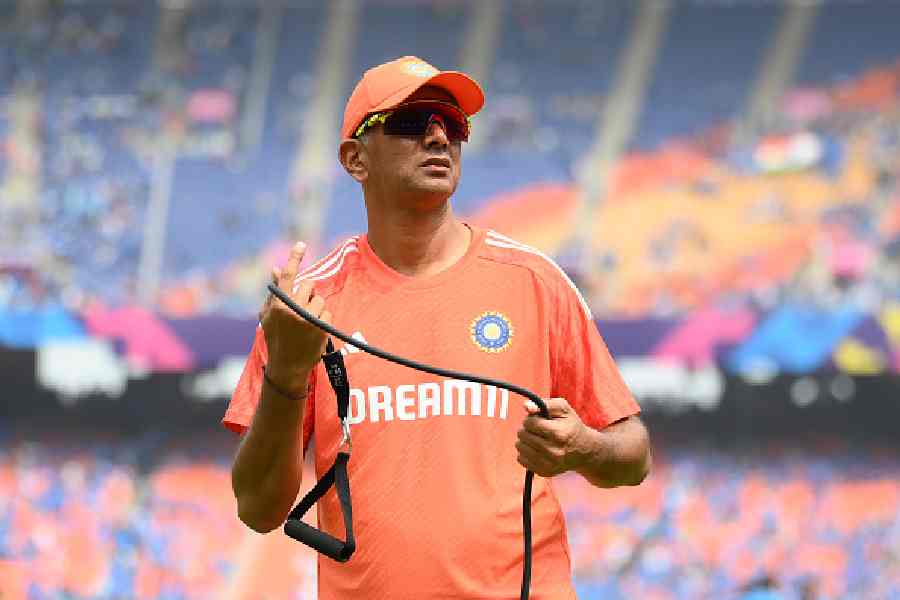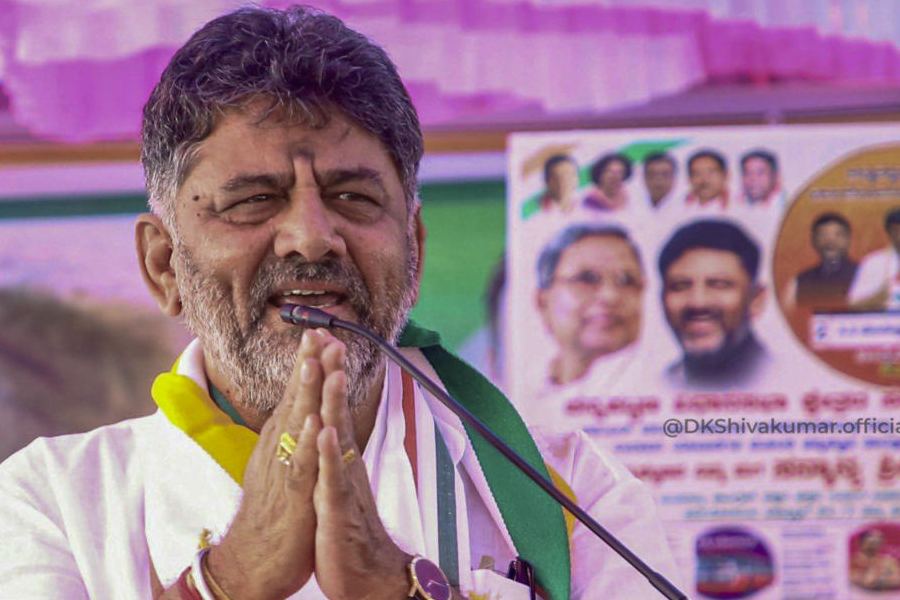The preface to the battle for 2024 has brought cheer to the Narendra Modi power project and a knock on the chin to the Congress.
The Congress has lost all three heartland states to the BJP; its silver lining was defined by victory in Telangana, but that came with a dark cloud attached.
The party has nothing in the west or above the Vindhyas other than a thumb-hold in Himachal Pradesh, and Sunday’s reverses have prompted INDIA partners to question its ability to lead the Lok Sabha campaign looming close.
The BJP dealt the most damaging blows to Congress expectations in Chhattisgarh, which Bhupesh Baghel was widely predicted to retain, and Madhya Pradesh, where incumbent Shivraj Singh Chouhan demonstrated spectacular durability to steamroll Kamal Nath’s challenge.
The loss in Rajasthan, which has a record of switching loyalty every five years, was predicted, but Ashok Gehlot had boasted of bucking the trend on the back of his welfare schemes. It isn’t clear yet to what degree his bitter public scuffling with bête noire Sachin Pilot may also have hurt the Congress.
Sunday’s outcomes in the three central-north states — an absolute reversal of the Assembly results of 2018 — have provided the BJP booster doses of impetus. The Congress — and INDIA — have been impeded.
As one senior Congress leader confided to The Telegraph: “The plain thing is this: the BJP and Narendra Modi were able to neutralise the Assembly losses of 2018 with relative ease because of multiple factors, chief among which is Modi’s connect with the voter. For the Congress and the Opposition, these losses will be much harder to overcome or overturn.”
As the BJP, typical to house-style, draws energy from these victories to feed its ever-churning poll machinery, the INDIA grouping must worry about its act turning into a non-starter.
This round of Assembly polls, after all, has been a dazzling exhibition of how a larger coalition such as INDIA should not work. There wasn’t a single rally or stage that leaders from supposedly allied parties shared during the entire campaign.
Several of them — the Samajwadi Party, the Aam Aadmi Party and Nitish Kumar’s JDU — were in the contest independent of the Congress. Nitish and Akhilesh Yadav, in fact, went public during electioneering with their disapproval of how the Congress had treated INDIA.
Nitish said the Congress had forsaken INDIA’s interests in favour of contesting elections on its own; Akhilesh openly derided the Congress.
“Do not vote for the Congress. It is a very cunning party,” he said during the campaign, challenging its commitment to an all-India caste-based census.
Kamal Nath, who ran a consciously hard-Hindutva campaign in Madhya Pradesh and came a poor second to the BJP, demonstrated open disdain for INDIA throughout.
He peddled his own version of the Congress, paying public obeisance to specially invited “godmen” like Bageshwar Baba and showcasing his temple love, but proved the adage that you can’t become more Christian than Christ.
He shot down a suggestion that the fourth INDIA conclave be held in Bhopal, brazenly broke the public dissociation of INDIA parties with black-balled television anchors, and mocked alliance leaders like Akhilesh, calling him “Akhilesh-Vakhilesh”.
It is probably no surprise that Congress president Mallikarjun Kharge began burning the phone lines to INDIA leaders just as it became clear that his party was being ousted from two heartland states and would fail to wrest the third.
Parliamentary leaders of INDIA are set to meet as the winter session opens on Monday, and an apex meeting may be held on December 6.
Clearly, the Congress will arrive at these meetings reduced of leverage and open to some hard questions from other INDIA members.
The JDU general secretary, K.C. Tyagi, probably flagged the mood in the coalition when he said: “This is the defeat of the Congress, not of INDIA…. Now it is clear that the Congress cannot defeat the BJP on its own. Kharge has called a meeting of INDIA on December 6, what is the point of this now?”
Tyagi criticised the Congress for keeping partners at arm’s length during the elections, and said: “Sub-national parties like the RJD, JDU, TMC, DMK, NCP and Shiv Sena will be able to put up a good fight against the BJP.”
There are other issues that the last major polls before the 2024 campaign for the Lok Sabha have thrown up for the Congress in particular to ponder.
This campaign — like Rahul Gandhi’s Bharat Jodo Yatra — has probably demonstrated even more sharply the chasm between high optics at the top and the deficiencies on the ground.
Both Rahul and Priyanka Gandhi Vadra campaigned energetically and tirelessly but their effort, responsible Congress leaders concede, was not matched by organisational heft and ability, especially on polling day when fetching voters to polling stations becomes critical to outcomes. That’s something the BJP’s poll drivers have turned adept at.
It may also worry the Opposition to Prime Minister Narendra Modi that key issues like the encouragement to a majoritarian ethic, the protracted dereliction around the violent discord in Manipur, the blatant spur to crony and monopoly capitalism appear not to have riveted voter concern.
Neither, to any demonstrable degree yet, has the Congress’s newfound attachment to Mandal politics and Rahul Gandhi’s foregrounded advocacy of a countrywide caste-based census.

